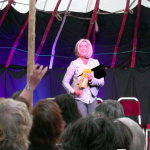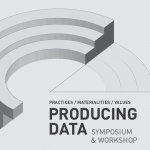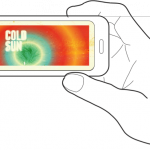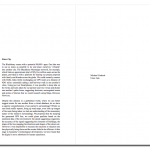NordiCHI Exploring incentivisation in design
Participants:
Edinburgh: Chris Speed, Siobhan Magee, Debbie Maxwell, Mark Hartswood
Birmingham: Julia Hibbert
Dundee: Jayne Wallace
UCL: Connie Golsteijn
Glasgow: Gregor Doverty
This interactive multidisciplinary one-day workshop brought together researchers and practitioners interested in exploring the ethical, economic, and material entanglements constituted by incentivisation. Points of departure involved discussions of, on the one hand, designs projects which endeavor to explore incentivisation and, on the other hand, workshop participants’ recollections of and opinions regarding instances in which they have (intentionally or otherwise) incentivised the engagement of research participants and/or users in their projects. Our day of collaboration comprised of lightning presentations, discussions, and an activity based around a particular socio-technical and economic context in which participants will be encouraged to develop design solutions for incentivisation.
The event took place during NordiCHI 2014 on the 27th of November.
Introduction: ‘ties that bind’?
‘An incentive’ is commonly understood as that which encourages or motivates someone to do something. This has weighty and currently unclear ramifications for design and HCI contexts. Although in some respects comparable to ‘gamification’, one symptom of incentivisation (the rise of encouraging research participants and users to engage with design through perceived material or effective gain) seems to be its potential for engaging actors involved in processes into complex webs of obligation. Incentives gain their traction, not intrinsically, but rather from the contrasts and coherences they have with this background of ‘everyday motivations’. So the work of creating incentives depends crucially upon managing these relational qualities, and it is this work that is often lost sight of. This could be a hugely important area for incentive design – but it changes the game from incentives being ‘off the shelf’ or ‘plug and play’ items, to their being things that have to be creatively and intelligently fashioned and then tended.
It is increasingly apparent that successful incentive strategies have to be carefully designed so as to mesh into existing systems of value. Phenomena such as ‘badge fatigue’ [1] show both how the appeal of an incentive scheme can diminish if it is not given deeper community roots. Often the ongoing success of incentives depends upon persistent and continual renewal, injection of novelty, and ongoing recruitment to replace defecting adherents.
Our perspective when establishing this workshop is that there needs to be a nuanced discussion on incentivisation which approaches the topic in a manner than is ethical but not puritanical and which aims to consider and compare how incentives can be made clear in design artefacts and processes not only when they work in the short-term but when they work in the long-term too.
Workshop description
Workshop aims
• Recognize and identify, through participant examples, when and how incentives (e.g. money, vouchers, fun, connections) are inherent to designs and how incentives come to be part of projects.
• To share as a group stories of how people have encouraged publics’ uptake of their research processes and where appropriate projects and to reflect on these stories.
• To use presentations of participants’ experiences to compare and contrast the ways in which ideas and practices surrounding incentivisation might vary between disciplines, between public and privately-funded projects, and between different media.
• To discuss how digital worlds might make incentivisation a meaningful and thought-provoking new paradigm for discussing research about and in digital worlds.
Design Activity
The workshop is structured around a combination of short presentations, design activities, and focused discussions. The day will be structured into sessions with pauses for coffee and lunch: Part one: The organisers will set the scene with regard to the research challenge and the role of design, using contemporary examples to illustrate the complexities involved. Part two: Participants will be invited to share methods through lightning presentations to enable quickly captured models and experiences across the theme of incentivisation. These models will be transcribed to Magic White Wall sheets and operate as reference/ precedent models for later reflection and use in the design activity. Part three: a discussion based upon the case studies offered by participants to both qualify and extend the models that were caught during the lightning talks, and identify other challenges of design research across the area of incentivisation. Part four: The largest part of the day, participants will be given a context, a design product / platform (could be new or existing), a business model and a community and will be asked to consider and develop incentive schemas that work toward a desired outcome. There is no determined view that each schema should be virtuous, and it might be that participants would prefer to breach a context breach in order to explore how incentive might be exercised. The team will use actual contexts located within the vicinity of the workshop venue to provide a rich context for ideation. A variety of materials will be available for constructing responses which we anticipate will vary from theoretical responses, business models, physical maquettes, to design propositions that are manifest in three dimensions.
Outcomes
Throughout the workshop, activities will be video recorded and a ‘live blog’ will be run to give a sense of the ongoing activities. Prior to the workshop a website will host participants’ position statements, project links and offer the beginnings of a bibliography. Other pre-workshop activities will also include social media networking in support of pre and post-workshop activities. Follow-up activities will include discussions toward journal and conference papers.
Engagements with the field
We anticipate that the workshop will contribute critically to thought on two central lines of enquiry:
a) Gifts, exchanges, and obligations in design processes
Co-design and participatory design often involve the time, energy, and creativity of groups outside of both academia and industry, and in many cases unpaid. What incentivizes their participation? How might, for example, school children and students’ participation in design when they are unpaid but gain in education and experience be conceptualized as incentivisation?
In which ways does incentivisation involve the meeting of the ethical and the temporal in design processes? Marcel Mauss’ classic text The Gift [4] is pertinent here, as it describes that the passing of things between people creates relationships. What do designers owe to those who use their designs or participate in their research? When do designers consciously or otherwise incentivize participation with material benefits and when with intangible benefits such as connections, care, and time spent listening?
b) ‘Data-value constellations’
Projects emerging from the UK Research Councils theme: New Economic Models for the Digital Economy (NEMODE), offer designers access to contemporary research on how to design data-value-constellations that encompass the ‘long tail’ before, during and after audiences engage with design systems [3]. Recent research in value creation has explored how value and worth is produced and diminished as individuals interact with services. Due to the increasing accumulation of data that is attached to services it is possible to start examining how concepts of value change as participants engage with different types of systems. Research has revealed how markets are constructed as individuals reconcile tensions across contexts to develop ‘service ecosystems’ [1], and designers are beginning to play a part in shaping the incentives that contribute to these systems.
The authors of this workshop consider it important to begin to explore this research and vocabulary to better understand the broader Service Ecosystem that extends across the Data-Value-Constellations that are connected to emerging design practices. Such an understanding would begin to reveal how the patterns of environment and human activities that relate to an internet of things system (for example) are informed by incentivisation techniques.
Organisers’ backgrounds
Chris Speed Chair of Design Informatics at the Edinburgh College of Art, University of Edinburgh and has sustained a critical enquiry through practice and theory into how network technology can engage with the fields of architecture, design and human geography.
Siobhan Magee is a Research Associate in Ethnography on the Internet of Secondhand Things project carried out between the University of Edinburgh and University College London.
Deborah Maxwell is a Postdoc Research Fellow at Edinburgh College of Art, University of Edinburgh. Research interests include the ways that people interact with and reshape technology, and how interface design can impact users’ perceptions of quality, relevance, and sense of engagement with content.
Dr Hartswood is a HCI and Social Informatics researcher with significant experience of ethnographic fieldwork and applying user-centred approaches to innovate interface designs in complex settings.
References:
[1] Kuo, I (2013) Gamification Pitfalls: Badge Fatigue and Loyalty Backlash: http://www.gamification.co/2012/09/12/gamification-pitfalls-badge-fatigue-and-loyalty-backlash/
[2] Chandler, J. D., & Vargo, S. L. (2011) Contextualization and value-in-context: How context frames exchange. Marketing Theory, 11(1): 35–49.
[3] Ng, I. (2012) Value & Worth: Creating New Markets in the Digital Economy, Innovorsa Press.
[4] Normann, R. & Ramires, R. (1994) Designing Interactive Strategy: From Value Chain to Value Constellation. John Wiley & Sons.
[5] Mauss, M. (1990[1925]). The Gift: The form and reason for exchange in archaic societies. London: Routledge.
Related posts

CFP: Algorithmic Practices: Emergent interoperability in the everyday
Algorithmic Practices: Emergent interoperability in the everyday RGS-IBG 2015 Sponsored by: The Hist

Design Informatics Seminars
This terms talks at the centre… Download poster here Research Seminars Semester 1 T-Room, Flo

“Is Your Marmite Watching You?”
Design Informatics took part in this year’s Edinburgh Fringe with the Beltane Public Engagemen

Producing Data: Practices, Materialities, Values
An interdisciplinary symposium 3rd – 4th September 2014, University of Edinburgh Hosted by: De

CoGet
So a brief summary and documentation of the CoGet workshop at Future Everything in March 2014. Acros

A Rhetorical Approach to Gameful Design
A Rhetorical Approach to Gameful Design Paul Coulton, ImaginationLancaster Thursday 1st May 4pm T-Ro

CoGet @ Future Everything
We are experimenting with our social logistics software CoGet at Future Everything in March: http://

Casting Time #2
Casting Time #2 Chris Speed, Margaret Stewart, Jules Rawlinson & Jane Macdonald 17th – 28t

Drawing With Satellites #3 book
Well that took a while! Following the workshop in February I finally got around to laying up the ima
